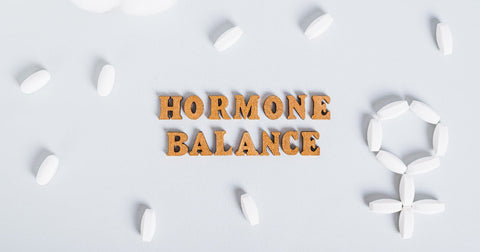Probiotics are the buzzy "good bacteria" supplements promising improved gut health and a range of other wellness benefits. But navigating the world of gut health supplements can be overwhelming. If you're a woman aged 25 to 65, you might be wondering: When is the best time of day to take probiotics?

While there's no one-size-fits-all answer, let's delve into the science and strategies to optimize your probiotic intake.
Understanding Probiotics and Gut Health
Your gut is home to trillions of microorganisms –ad bacteria, fungi, and viruses - collectively known as the gut microbiome. This intricate ecosystem plays a critical role in digestion, immune function, and overall well-being.
Probiotics are live microorganisms that, when consumed in adequate amounts, can confer a health benefit on the host. They support a balanced gut microbiome, which is crucial for various aspects of health.
When is the Best Time to Take a Probiotic? Factors to Consider
The optimal time to take your probiotic depends on various factors, including:
- The specific probiotic strain: Different strains have different survival rates in stomach acid. Some strains are more acid-resistant and can be taken anytime, while others benefit from being taken with food or at specific times of day.
- Your individual goals: Are you taking probiotics for general gut health maintenance, or do you have specific concerns like bloating, constipation, or immune support?

- Your daily routine: Choose a time that fits seamlessly into your schedule so you can be consistent with your probiotic intake.
Best Time to Take Probiotics: Morning or Night?
There's debate about the "best" time, but here's a breakdown of the two main options:
Morning with breakfast:
- Pros: An empty stomach may allow probiotics to reach the gut faster. Food can buffer stomach acid, helping some strains survive.
- Cons: If you're rushing in the morning, you might forget. Some probiotics are best taken on a truly empty stomach.
Night before bed:
- Pros: Your gut is less active at night, potentially allowing probiotics to colonize more effectively. Some studies suggest improved sleep quality.
- Cons: Not all probiotics are suitable for nighttime use.
Too Much Probiotics: Is There Such a Thing?

While generally safe, excessive probiotic intake can lead to side effects like gas, bloating, or diarrhea. It's crucial to follow the recommended dosage on your probiotic supplement and consult your doctor if you experience any adverse reactions.
Addressing Underlying Issues: Food Intolerances and Beyond
If you're struggling with persistent digestive issues, probiotics might not be the sole solution. Underlying food intolerances or sensitivities can disrupt your gut microbiome and contribute to various symptoms.
A food sensitivity test kit can help identify trigger foods so you can tailor your diet for optimal gut health.
Conclusion:
Choosing the best time of day to take probiotics is a personal decision, influenced by your specific needs and goals. Remember, consistency is key to reaping the benefits of these beneficial bacteria. Whether you choose morning or night, prioritize regular intake and pair your probiotics with a healthy lifestyle.
And if you suspect food intolerances might be impacting your gut health, consider exploring a food sensitivity test to gain deeper insights and take proactive steps toward a happier, healthier you.
Frequently Asked Questions:
1. I'm taking antibiotics. Can I still take probiotics?
Yes, you can and should! Antibiotics can disrupt your gut microbiome, killing both good and bad bacteria. Taking probiotics during and after antibiotic treatment can help replenish the beneficial bacteria and reduce the risk of side effects like diarrhea.
2. Can I take probiotics with other medications?
It's generally safe to take probiotics alongside other medications, but it's always best to consult your doctor or pharmacist, especially if you're taking any medications that affect your immune system or gut health.
3. How do I choose the right probiotic supplement?
Look for a reputable brand that offers clinically studied strains and clearly lists the number of colony-forming units (CFUs) per serving. Consider your specific health goals and consult with your doctor or a registered dietitian for personalized recommendations.
4. Can I get probiotics from food instead of supplements?
Yes, fermented foods like yogurt, kefir, sauerkraut, and kimchi are natural sources of probiotics. Incorporating these foods into your diet can support a healthy gut microbiome.
5. I've been taking probiotics for a while, but I haven't noticed any difference. What should I do?
The effects of probiotics can vary from person to person. If you're not experiencing any noticeable benefits, consider trying a different strain or brand. You can also consult with a healthcare professional to discuss alternative options or further investigate any underlying digestive issues.


.png?v=1737390083)
.png?v=1737187409)


